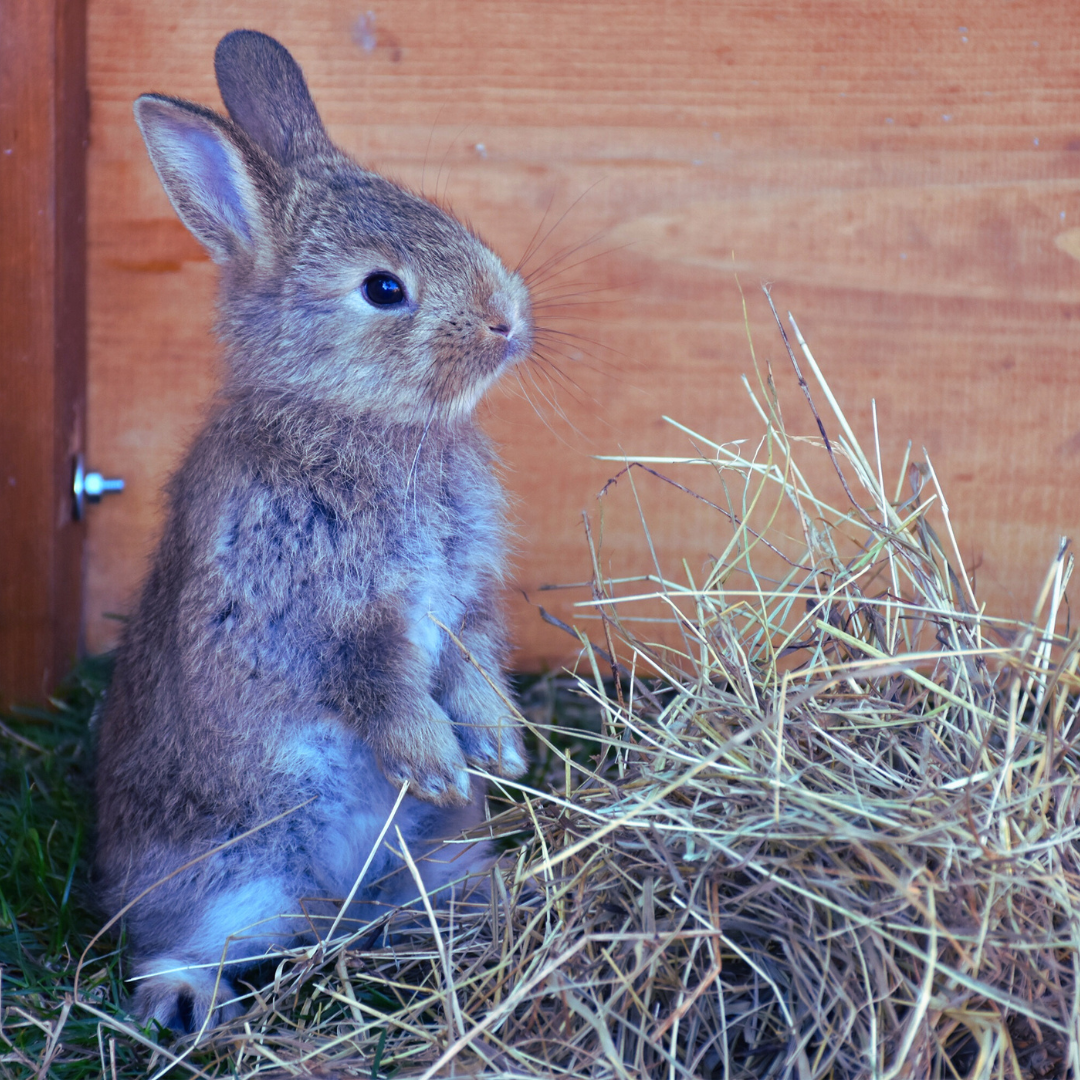Bunnies will chew on almost anything they can get their paws on, from furniture and wires to shoes and carpets. While this is a completely normal behavior (they need to gnaw to keep their teeth healthy), it can be frustrating if your bunny is leaving destruction in their wake. Fortunately, there are many ways to keep your pet from chewing on everything and protect your home from damage.
Here’s a guide to help keep your bunny’s chewing habits in check while ensuring they stay happy, healthy, and entertained.
1. Provide Plenty of Chew Toys
One of the most effective ways to prevent your bunny from chewing on furniture or other household items is to offer a variety of chew toys. Bunnies need to chew to maintain their dental health, as their teeth grow continuously. Giving them safe, fun alternatives can help satisfy this instinct.
- Wooden Toys: Choose toys made from untreated wood which are safe for rabbits to gnaw on.
- Cardboard Boxes & Paper: Bunnies love shredding cardboard, so give them cardboard boxes or tubes to play with. These can also serve as great hideouts and provide some mental stimulation.
- Hay Balls and Mats: A hay ball or hay-filled toys are a fun and edible way to keep your bunny busy while satisfying their need to chew.
2. Bunny-Proof Your Home
Bunny-proofing is an essential step in keeping your home intact. Take the time to assess your living space and identify potential chew hazards.
- Cover Cables and Wires: Bunnies love to chew on electrical wires and cords. Protect them by using plastic tubing, cord protectors, or cable management clips. If possible, keep wires out of your bunny’s reach.
- Furniture and Wood Protection: If your bunny has access to wooden furniture or baseboards, use furniture covers or special sprays designed to deter chewing. You can also apply a pet-safe deterrent (like bitter apple spray) to areas where chewing is a problem.
- Rug and Carpet Protection: Rugs and carpets are another common target. Consider using area rugs that are easy to clean or invest in a protective covering for your floors. If your bunny loves to dig or chew carpets, try using a pet-friendly deterrent or a chewable mat to redirect their attention.
3. Create a Chew-Friendly Play Area
Create a designated play area or bunny-proofed space where they can safely explore and enjoy their chew toys.
- Pen or Playpen: Set up a pen or playpen that contains all their essentials, including chew toys, a litter box, and places to hide and hop around. This gives your bunny a fun, safe environment while protecting your belongings.
- Floor Mats or Play Mats: Place play mats or soft flooring in the bunny’s area to give them a safe, designated space to explore. This can help limit their access to more delicate areas of the house.
4. Offer Fresh Hay
Hay is essential to a rabbit's diet and provides not only the nutrients they need but also a great chewing outlet. Bunnies love to chew on hay, and it helps wear down their teeth in a healthy way.
- Variety of Hay: Ensure your bunny has access to a constant supply of fresh hay (timothy, meadow, or orchard hay) at all times. You can hang hay in hay racks or stuff it inside chew toys to keep them engaged.
5. Exercise and Mental Stimulation
If your rabbit isn't getting enough physical and mental stimulation, they may resort to chewing on furniture out of frustration. Ensuring your bunny gets plenty of exercise and mental engagement will help prevent destructive chewing behaviors.
- Exercise Time: Let your bunny roam freely in a safe, bunny-proofed area for a few hours each day. Encourage them to hop around, explore new spaces, and get active. This physical activity can help burn off extra energy and reduce destructive behavior. Don't be afraid to put them on a leash and harness and go out and explore together!
- Interactive Toys and Puzzles: Provide toys that require your bunny to work for their food, like puzzle feeders or treat-dispensing toys. These can keep their minds engaged and distract them from chewing on your things.
6. Train Your Bunny with Positive Reinforcement
Although bunnies don’t respond to training in the same way as dogs, they can learn through positive reinforcement. By redirecting their chewing habits and rewarding them for good behavior, you can help your bunny understand what is and isn’t acceptable to chew.
- Redirect Their Attention: If you catch your bunny chewing on something they shouldn’t, gently redirect them to one of their chew toys. When they start chewing the toy, praise them and offer a small treat as a reward.
- Consistency is Key: Training a bunny takes time and patience. Be consistent in redirecting their chewing habits, and reward them when they focus on their toys instead of your belongings.
7. Spay or Neuter Your Bunny
If your bunny is unspayed or unneutered, they may exhibit more destructive behaviors, including excessive chewing. Spaying or neutering your bunny can help reduce hormonal-driven behaviors and make them more content and less prone to mischief.
- Behavioral Changes: Once your bunny is spayed or neutered, you may notice a reduction in undesirable behaviors, such as territorial chewing or chewing out of frustration.
8. Provide Plenty of Attention and Companionship
Rabbits are social creatures and thrive when they have enough interaction with their owners. If your bunny is left alone too much, they may resort to chewing as a way of coping with loneliness or boredom. Be sure to spend quality time with your bunny daily, either through gentle petting, playtime, or just sitting nearby.
- Bonding Time: Consider adopting a second bunny if you’re able to provide them with enough space and attention. Rabbits often enjoy the companionship of another bunny, which can reduce anxiety and destructive behaviors.
Conclusion
By providing the right chew toys, creating a bunny-friendly environment, offering plenty of mental and physical stimulation, and using some positive reinforcement techniques, you can help prevent destructive chewing and ensure your bunny stays happy and healthy. With a little patience and care, your bunny’s chewing habits can be managed, allowing you both to enjoy a peaceful home together.

